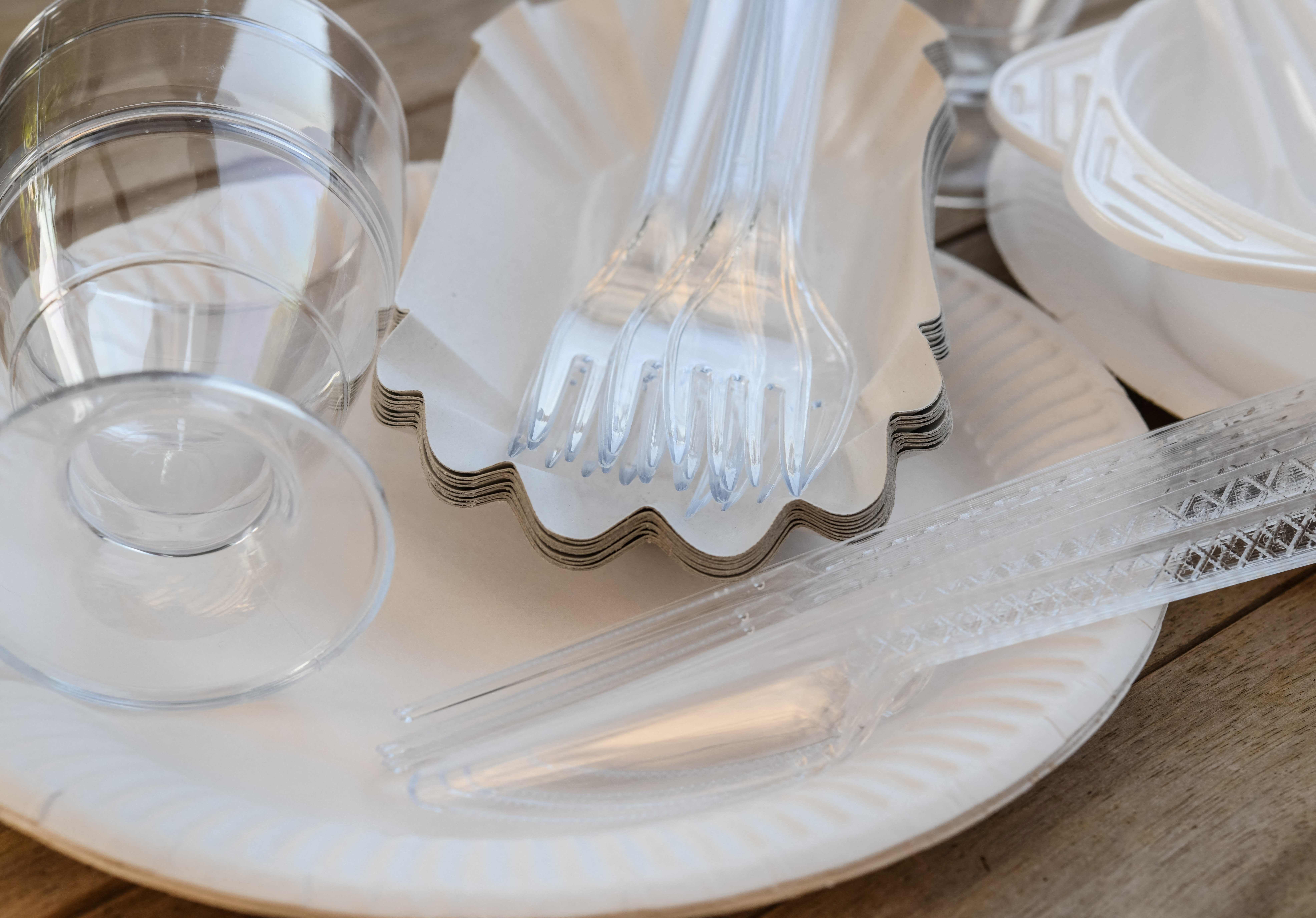Single-use plastic plates, cutlery and polystyrene cups could be banned in England under government plans
Billions of single-use plastic plates and cutlery are used and thrown away in England each year

Single-use plastic plates, cutlery and polystyrene cups could be banned in England under new plans.
The government is launching a public consultation on the proposal in autumn amid attempts to crack down harder on plastic waste and litter.
Each person uses 18 single-use plastic plates and 37 single-use plastic items of cutlery each year in England, according to figures from the Department for Environment, Food and Rural Affairs (Defra).
In total, 1.1 billion single-use plates and 4.3bn single-use items of cutlery are used and then binned in England each year, Defra said.
Plastic items can last for centuries in landfill, and often end up littering streets and beauty spots such as parks, the countryside and oceans, the government warned.
Plastic litter kills animals and sealife. More than one million birds and more than 100,000 sea mammals and turtles die around the world every year from eating plastic waste or getting tangled and trapped in it.
The proposals follow the 2018 ban of microbeads in rinse-off toiletries, restricting the supply of single-use plastic straws, drink stirrers and cotton buds in 2020, and further reducing use of plastic bags by increasing the charge in all shops this year.
Defra said the latest plans would build on the success of those measures and form part of the government’s commitment to prevent all avoidable plastic waste by the end of 2042.
Environment secretary George Eustice said: “We’ve all seen the damage that plastic does to our environment.
“It is right that we put in place measures that will tackle the plastic carelessly strewn across our parks and green spaces and washed up on beaches.
“We have made progress to turn the tide on plastic, banning the supply of plastic straws, stirrers and cotton buds, while our carrier bag charge has cut sales by 95% in the main supermarkets.
“Now we are looking to go a step further as we build back greener. These plans will help us stamp out the unnecessary use of plastics that wreak havoc with our natural environment.”
Jo Morley, head of campaigns at City to Sea, said that the environmental charity welcomes the news.
She added: “This is a much-needed move, that we as campaigners have been calling for, along with thousands of our supporters and members of the public.
“We need now to take a leading role in banning unnecessary single-use plastics to see real benefits for the nation’s and the world’s wildlife.”
Last month, the sale of single-use plastic plates, cutlery, straws, balloon sticks and cotton buds was banned in European Union member states.
The EU ban also covers cups, food and beverage containers made of expanded polystyrene, and all products made of oxo-degradable plastic.
Last month, 21 campaign groups – including Greenpeace, Friends of the Earth, City to Sea and Keep Britain Tidy – urged the government to make good on its promise that environmental standards will not fall behind the EU’s following Brexit.
Friends of the Earth had said the UK government is “still stalling” while EU member states are legislating to ban the most polluting single-use plastics, adding: “We desperately need plastic reduction targets in law.”
Government ministers have insisted that high environmental standards would be upheld post-Brexit, and promised that Britain would be a world leader in green issues.
Join our commenting forum
Join thought-provoking conversations, follow other Independent readers and see their replies
Comments
Bookmark popover
Removed from bookmarks